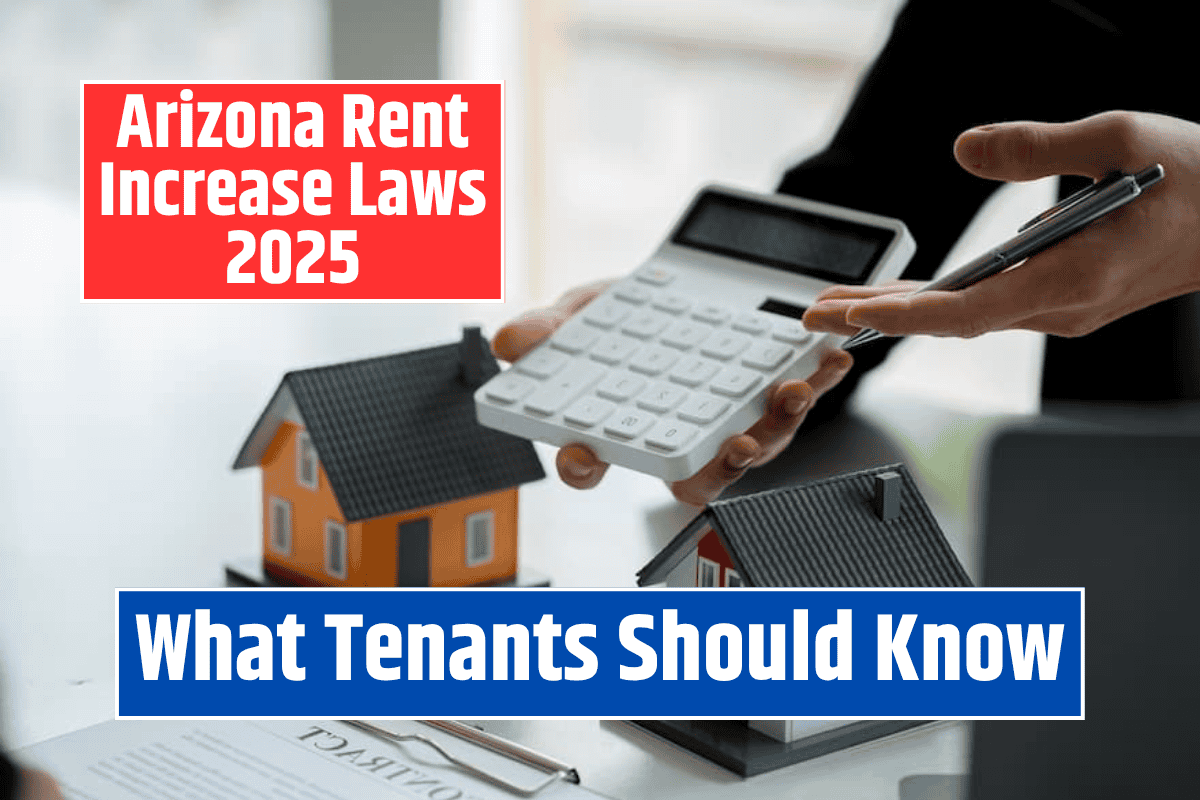Rent control policies have been a subject of debate across the United States for years. Landlords may raise rent in many places, but it’s essential to understand the local laws before doing so to avoid legal complications.
This guide will help Arizona tenants and landlords understand the state’s current rent increase rules and provide clarity on how to manage rent payments.
Overview of Arizona’s Rent Laws
Does the Landlord Need a Reason to Raise Rent?
No, there is no need for landlords in Arizona to provide a reason to raise the rent.
Is There a Limit on Rental Prices?
No, there are no limits on how much a landlord can increase the rent in Arizona.
How Much Notice Is Required?
Depending on the type of lease, landlords must provide either 7 days or 30 days’ notice before raising the rent.
Arizona Rent Control
Currently, Arizona does not have rent control laws. The state law actually prevents local governments from imposing rent control, which gives landlords more flexibility in managing rental agreements.
This means there are no set maximum amounts that a landlord can increase rent by, but there are still some requirements for notifying tenants.
Rent Increase Laws in Arizona
Here’s a breakdown of the most common questions related to rent increases in Arizona:
How Much Can Arizona Landlords Raise Monthly Rent?
In Arizona, landlords can raise the rent by any amount they deem appropriate, as long as proper notice is provided to the tenant. There is no legal cap on how much rent can be increased.
However, it is advisable for landlords to keep rent increases reasonable based on local market rates, as charging too much could make it harder to find tenants.
How Often Can Arizona Landlords Raise Rent?
Landlords in Arizona have significant freedom when it comes to how often they can raise rent. However, it’s important to remember that rent increases cannot happen during the fixed term of a lease unless specifically stated in the rental agreement. This means that for a one-year lease, rent cannot be raised until the lease expires.
Additionally, rent increases should never be for retaliatory or discriminatory reasons, which is prohibited by both state and federal law.
How Much Notice Do Landlords Need to Give?
The notice period required depends on the type of lease agreement:
Monthly leases: Landlords must give 30 days’ notice before raising rent.
Weekly leases: Landlords must give 10 days’ notice before raising rent.
For yearly leases, the rent can generally only be raised when the lease term ends, and there are no specific notice requirements for this period, but landlords are expected to act in good faith. If a landlord fails to send notice or raise the rent appropriately, tenants can pursue legal action.
Are There Any Exceptions to Rent Increases According to Arizona Law?
Yes, there are exceptions. Landlords cannot raise rent in the following situations:
During the middle of the current lease term unless allowed in the lease agreement.
If the rent increase is done for discriminatory or retaliatory reasons.
Discriminatory actions are defined by the Federal Fair Housing Act, which prohibits discrimination based on:
Age
Gender
Race
Sexual orientation
Nationality
Religion
Origin
Familial status
Disability
Retaliatory actions occur when a landlord raises rent in response to actions such as:
A tenant filing a complaint with a law enforcement agency (for issues like unsafe living conditions).
A tenant joining or organizing a tenant union.
A tenant filing a complaint because the landlord failed to fulfill their obligations under the lease.
Any rent increase made within six months of these events may be considered retaliatory.
In Arizona, landlords have considerable freedom when it comes to raising rent, but they must follow specific notice requirements and avoid raising rent for discriminatory or retaliatory reasons.
Tenants should be aware that there are no rent control laws in the state, which gives landlords more flexibility, but also means rent can be increased at the landlord’s discretion as long as proper notice is given.
It’s always a good idea for both tenants and landlords to keep communication open and ensure they understand their rights and responsibilities under Arizona’s rental laws.
For further information on rental agreements, security deposits, and other rental-related topics, be sure to check out more of our resources!












